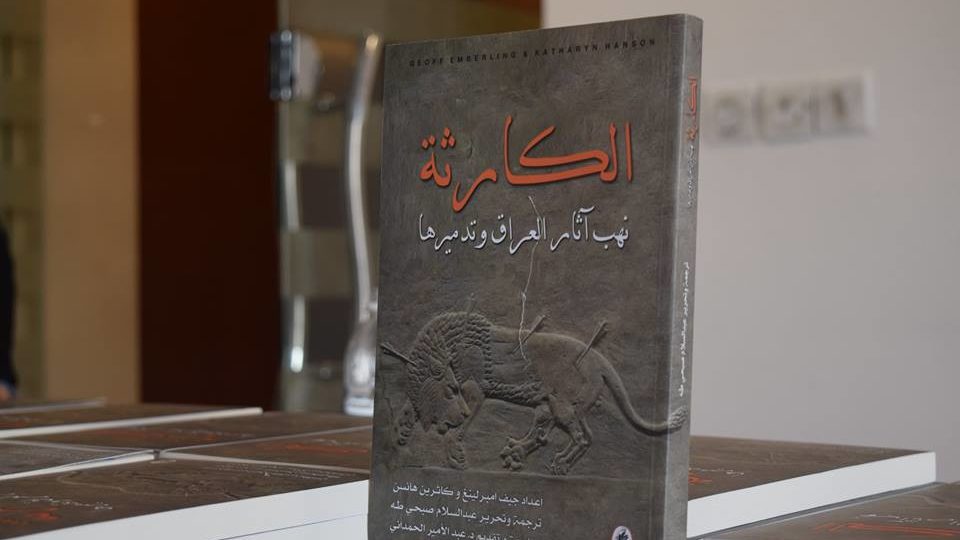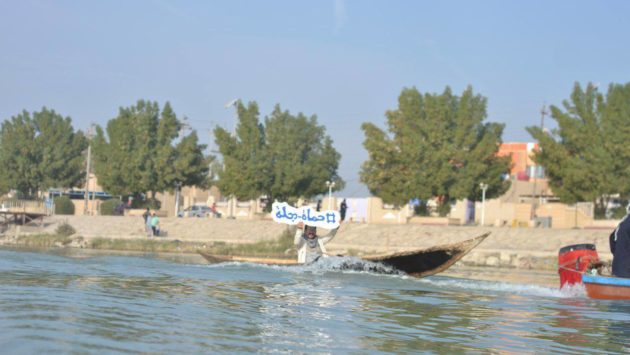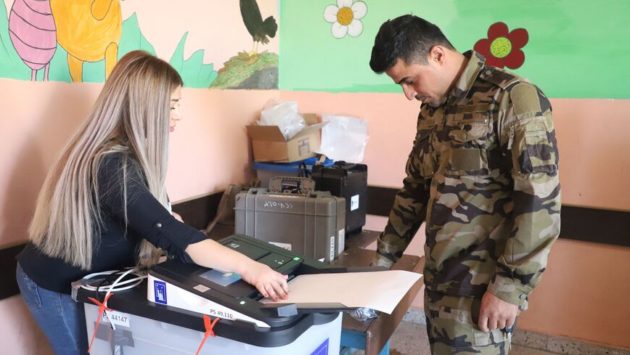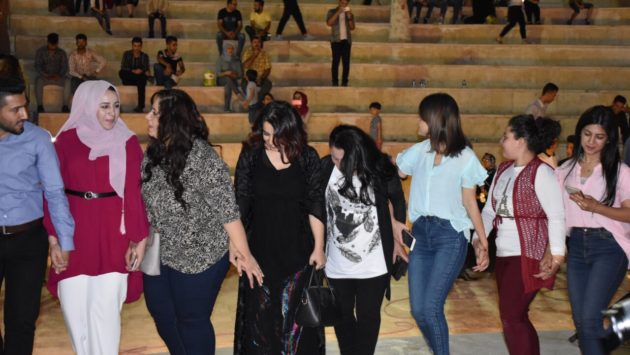Book Launch for “Catastrophe: The Looting and Destruction of Iraq’s Past”
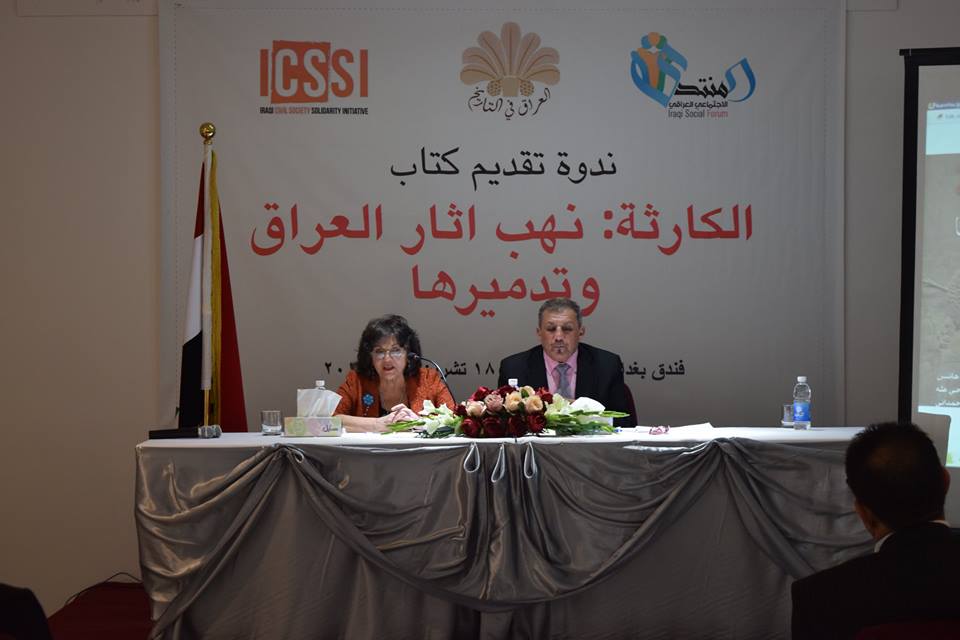
On Saturday, November 18, the Iraqi Social Forum held a book launch for Catastrophe: The Looting and Destruction of Iraq’s Past in conjunction with the Iraqi Civil Society Solidarity Initiative and the Iraq in History Foundation in the Tigris Hall at Hotel Baghdad. A number of specialists in archaeology and cultural heritage were featured speakers at the event. The book, translated into Arabic from English, discusses mainly the catastrophic looting of the Iraqi Museum that accompanied the entrance of American occupation forces in 2003, in addition to the efforts of Iraqi and foreign experts to preserve the museum and Iraqi archaeological sites prior to the occupation. The book also covers the international efforts that took place to play down the catastrophe and the ongoing looting of Iraq’s most important archaeological sites. The book was first published in English in 2008 and coincided with a traveling exhibition on the looting organized by the Department of Near Eastern Languages and Civilizations at the University of Chicago. With the consent of the original publisher, the translation team undertook to add several appendices to the text in order to update the state of affairs as described in it.
Mr. Ja‘far Darwish oversaw the book launch event, in which the State Board of Antiquities and Heritage was well-represented by D. Qais Husayn Rashid, the Board president and Undersecretary of the Ministry of Archaeology, Tourism, and Culture. Dr. Qais spoke about the Board’s current efforts undertaken to recover from the catastrophe and preserve what remains of Iraq’s cultural legacy, making reference to the practical limitations on what the Bureau can accomplish and to the importance of official and popular interests’ locking arms in cooperation for the sake of reaching sought-after goals.
Dr. Abd al-Amir al-Hamadani, a scholar of Iraqi archaeology who was the one to review the Arabic translation of the book, gave his paper at the launch event. It covered the destruction of archaeological sites in southern Iraq, documenting and securing sites, and digitizing information on all archaeological sites in Iraq. Dr. Abd al-Amir also contributed to one of the three appendices added to the book after it was translated into Arabic.
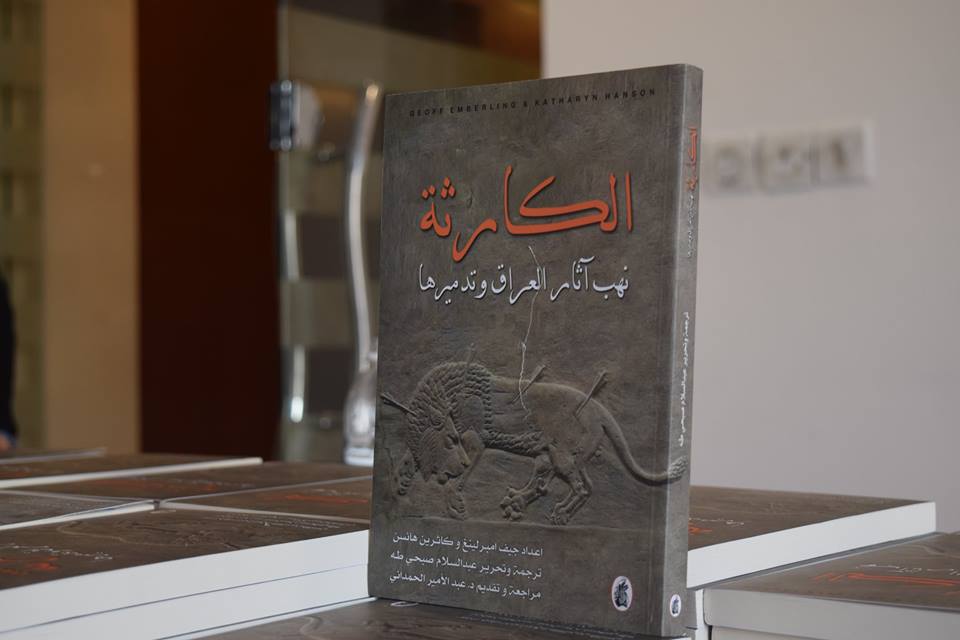
Next, Mr. Salam Taha, the archaeological researcher, spoke about how it was decided to translate the book and how the necessary permissions and translation rights were secured. He also spoke on the three articles forming the book’s second appendix that cover Iraqi cultural memory on the black market. Mr. Salam then proceeded to the third appendix, penned by Dr. Zaynab Bahrani on the militarization of archaeological sites. Finally, he gave acknowledgement before the audience to those organizations supporting the book project.
Dr. Emily Porter, a painter, archaeological researcher, and expert on Iraqi art, spoke next on the reverberations of the destruction of Iraqi civilizational memory in terms of it being a global and humanitarian heritage. She also referred to an effort she had begun several years earlier to enact a law in the United Kingdom, the largest black market in Europe for stolen artifacts that would cut off demand and remove incentives for pilfering and stealing them in the first place.
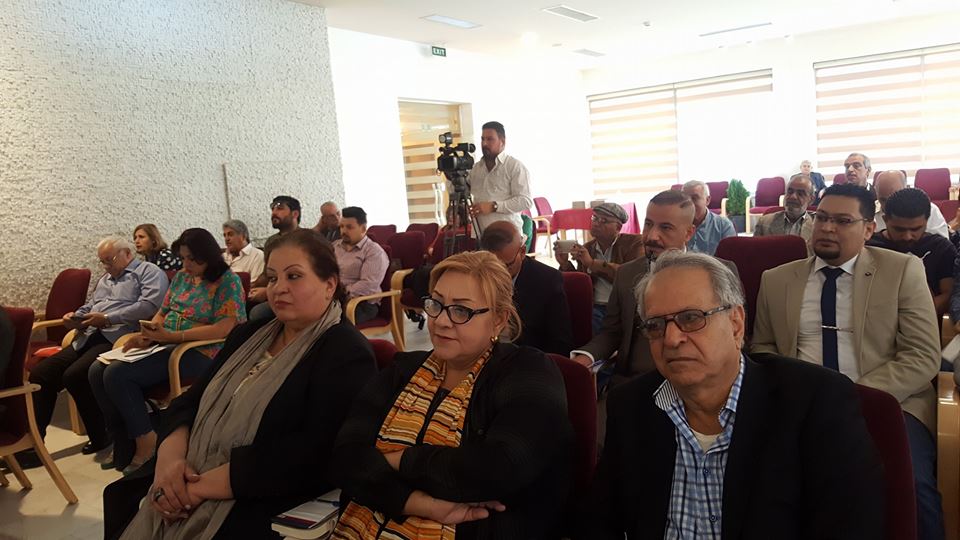
The last to speak was Mr. Salman Khairallah of the Iraqi Social Forum, who conveyed the organization’s desire to support efforts to preserve Iraqi cultural heritage, and its importance in restoring a united national identity, in consideration of ICSSI’s essential partnership in all efforts. And in passing, he made reference to ICSSI’s prior experiences in protecting Iraqi heritage, some of which stretched back over ten years to the beginning of the occupation and the catastrophe referred to in the book, and which extend right up to the formation of a committee for the present undertaking. He also referred to past collaborations between ICSSI, Emily Porter, and Mr. Salam Taha in this area, before finally offering that the publication of this book forms a part of efforts to launch a civil society campaign to protect Iraqi cultural heritage.
After a short break, the floor was opened to discussion between the audience and the speakers, during which many who had attended in an official capacity as workers in numerous ministries expressed their desire to undertake personal initiatives within their ministries, which might thereafter be transformed into official channels of communication. The discussion yielded several insights which will be formulated soon for dissemination to the State Board of Antiquities and Heritage.
Translated from the Arabic by Andrew Alger

